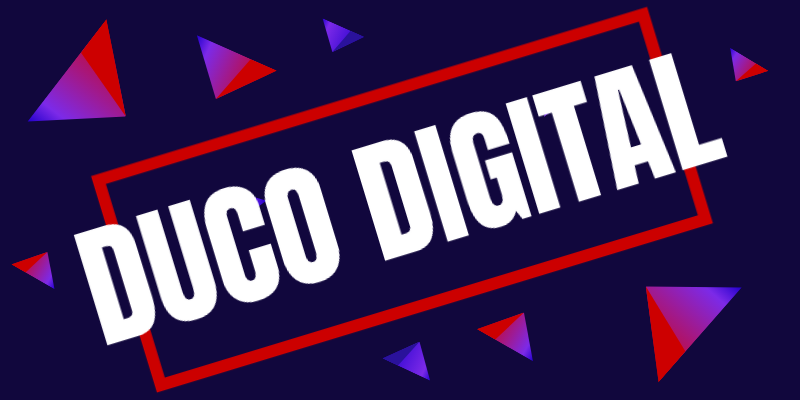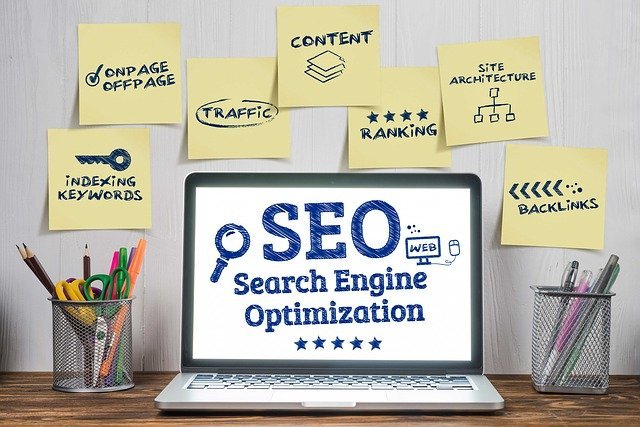12 Tips For Local SEO For Your Small Business
What is local SEO?
Local SEO is optimisation for a business with a one-off local location that serves an area e.g. Redcar rather than a head office that covers the whole of the UK
If you’re a local business then you MUST tap into the power of local search.
Make sure you work through the 12 tips below to help your small business be found online:
1. Google My Business (GMB)
You must have a listing on here, it’s one of the key things for local search. Please check out our other blog post where we go through the steps you need to follow and why you need to Set Up Your Google My Business listing.
According to Moz – Google My Business is the most influential factor for SEO when it comes to local search!
You also want to make sure you’re posting to your GMB page a bit like you do on social media as Google is giving increasing weight to your social media presence online. If you get traffic to your GMB page from your posts and website then it shows Google what you’re sharing is valuable.
If you haven’t got a website then this alone is the most important thing you want to set up online for your small business.
2. List your business in other Online Directories
This is something that has been part of an SEO plan forever as it’s a very powerful SEO tip.
One’s you might want to consider are:
· Yelp
· FourSquare
· Bing Places (in our blog post we talk about how you can duplicate your listing into Bing)
· Hot Frog
· Best of the Web
· About Us
You should also look for any other relevant online directories that you could get a listing in as they all count towards your SEO ranking.
Check out this article from the Search Engine Journal - 21 Online Directories That Still Have Value.
3. Keep your NAP info correct
Again we mention this in our blog post. Your NAP (Name and Place) info needs to be consistent and the same on your website, GMB, Facebook Page and any directory listings so Google can create the link between all of them to be you and that you’re genuine.
If you list it somewhere in a different way or your number is different on one listing e.g. you might use your mobile number on one but your business landline on another Google may stop showing your GMB listing in search as it doesn’t know your business is legitimate. So, it’s really important that you use the same information in the same display order everywhere.
You should also keep a record of each directory entry and place your NAP info is shown just in case you decide to move location or change your number in the future as each one needs to be updated. By not updating everything you run the risk, like we’ve already mentioned about Google not thinking it’s a legitimate business and therefore stop showing you in local searches.
You also want to keep any eye on any consumer suggestions Google makes to your listing on GMB or indeed any other business profile as someone could make a suggestion by mistake or to sabotage you so you need to make sure you catch it as soon as you can.
4. Target Local Keywords
You want to make sure you’re using local keywords e.g. if you’re an marketing company in Tees Valley you might want to check search volumes for different search terms e.g. “digital marketing company in Redcar” or “social media management in Redcar” rather than “marketing company in Teesside”
5. Optimise your website for local keywords
Once you have a list of local keywords you want to rank for the next step is to optimise your website for them. This is something that has been an important part of SEO for years.
You need to make sure your homepage & service pages contain the local keywords you want to rank for so you’re using them in your:
· Headings
· Title Tags
· Meta Descriptions
· Body
· Footer
If you can then it’s a good idea to have them in the page URL too.
When you’re adding the keywords make sure you add them into content naturally so the wording still flows rather than all over where they might not make sense.
6. Create Local Content
You need to create local content using your keywords. This could be a local offer, event, news etc.
If you were a marketing company you might decide to write a post around finding a local marketing company to do your campaigns. You would therefore want a local company with knowledge of your area, people, dialogue, businesses etc. who could write content that would appeal to your target audience as what strikes a cord with someone from the North East isn’t going to be the same as for a person from Cornwall or Devon.
7. Mobile Device Optimisation
This is something that is key today as people are on their phones or mobile devices all the time whether they’re on the bus or train going to work or sitting in the house watching television. If they have to wait ages for a website to load they will click off and find a site that loads quickly. In May 2020 according to www.chatmeter.com
Did you know?
“Where to buy” + “near me” mobile queries have grown by over 200% in the past two years. 2. As many as 46% of all Google searches are local.
8. Voice Optimisation
This is relatively new, however the number of voice searches is increasing rapidly. In July 2021 according to www.dns.website.com
As it’s something not all businesses are doing, this would give you a great edge over your local competitors.
This in itself is a whole other topic so please check out https://digitalagencynetwork.com/12-ways-to-optimize-your-website-for-voice-search/
9. Inbound Links
This is still an important strategy when it comes to local SEO. There are a couple of ways you can do this. One is to make a list of all your partners, contractors, suppliers, wholesalers, neighbours etc. that you have a relationship with & have a look on their website to see if there’s anywhere on there you could put a link to your website and offer them one on yours.
10. Location Pages
Do you have more than one local location?
If you do you want to set up a GMB, Facebook and service page on your website for each location.
These pages need to optimised for their own local search terms and have unique content because if you use the same content on each one for each location Google will see it as duplicate content and it could affect your main domain and ranking.
11. Reviews
Google Reviews & Facebook Reviews are vital for local SEO in 2021.
Positive reviews in particular are great for your business reputation & also boost your authority and credibility in Google’s eyes. But bad reviews can negatively impact you in search.
Unfortunately, you can’t stop people posting negative reviews but what you can do put you back in favour with Google is how you respond and how quickly you respond to that review.
By responding quickly to resolve someone’s complaint shows as a plus to Google because you’re listening to the customer and trying to improve their experience with you.
It’s also positive for you offline to as it increases your relationship with that person and means that if you’ve been able to right the wrong they’re more inclined to remember you and recommend you to someone else.
You should be thanking all people who have left you a positive review and trying to solve any problems that have resulted in a negative review.
It’s important you do this with other reviews e.g. Facebook, Trustpilot etc. as even though they don’t carry as much weight as a Google Review it also counts the other platform responses.
12. Don’t just focus on local SEO
Make sure you’re using other more traditional methods of SEO like how quickly your website loads on a desktop and a mobile.
You can run your website through Google’s Speed Test for both desktop & mobile here:
https://developers.google.com/speed/pagespeed/insights/
And you will receive a report advising any changes you need to make to improve the load time. Give this to your web developer to make the changes.
Ideally you want to have 90% or higher on each one!
If you’re struggling with SEO for your local or national business, we can help!
You might even be able to access funding of up to 55% (depending on location) for your marketing project to help your business grow through an online SEO strategy.
Head to our "Funding For Your Marketing Project" page for more details and to fill in the short form.

